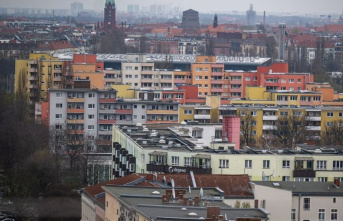SANTA BARBARA (Calif.) -- A wildfire raging in Southern California's coastal mountains threatened ranches as well as rural homes. On Wednesday, a major highway was closed due to the dry winds and increased risk of infernos.
The Alisal Fire engulfed more than 24 miles (62 km) of the Santa Ynez Mountains west Santa Barbara. Nearly 1,300 firefighters were involved, with many more in the pipeline. The limit on containment was maintained at 5%.
Although the area along the Pacific coast is not heavily populated, officials from fire departments said that the fire was a danger to more than 100 homes and ranches.
Rancho del Cielo was being protected by fire crews. It was previously owned by Ronald Reagan and Nancy Reagan. The ranch covering 688 acres (278 hectares) where Reagan hosted world leaders is high up in the mountains, above the flames that feed on dense chaparral grasses.
According to staff reports, the ranch fire was approximately a half-mile away (0.8 km) late Wednesday morning. However, that section was not as active, according to Jessica Jensen. She is vice president and chief executive officer of the Young America's Foundation which currently operates the ranch.
"We are grateful that there has not been any fire activity on the Reagan Ranch property. Jensen stated that the Ranch is in a stable position and sent an email to The Associated Press.
According to conservative youth organizations, the area had not burned since 1955.
The foundation stated that fire engines were present on ranch property. Fire retardant will also be applied to structures. It also noted that the ranch has two lakes, and helicopters have filled up with water.
It stated that Young America's Foundation has emergency personnel present on-site, and that our fire suppression systems have been tested and are ready to go.
Crews also protected Exxon/Mobil's gas processing plant in a canyon that was surrounded by flames.
Monday's fire broke out near the Alisal Reservoir. Strong winds from the north carried the flames through the mountains, forcing U.S. 101 to be closed in Santa Barbara County. The fire reached a beach at one point after it had jumped over the four-lane highway. Drivers have had to detour around the closure on smaller roads.
Andrew Madsen, spokesperson for the U.S. Forest Service, stated that the highway might remain closed until the weekend.
Madsen said that firefighters who had to work in rugged terrain received assistance from over a dozen air-dropping helicopters and tankers. They were able to return to the skies with calmer daytime winds.
He said that the aircraft would likely be shut down by the winds later in the afternoon.
According to the National Weather Service, there will be another round of notorious Sundowner winds in south Santa Barbara County Wednesday night. Other parts of California are also expected to face increased fire danger.
Red flag warnings will be in effect for the interior of Northern California due to low humidity and gusts on Thursday. A fire weather watch was also issued Friday by forecasters in Southern California because of the Santa Ana winds predicted.
Pacific Gas & Electric stated that it will likely need to turn off electricity in 13 Northern California counties Thursday in order to prevent wildfires being started by wind damage to powerlines. About 25,000 customers had lost power due to Monday's winds. The utility has just restored power.
According to the California Department of Forestry and Fire Protection, wildfires in California have destroyed nearly 3,900 homes and businesses, and scorched close to 3,900 square miles (10.101 kilometers) of land.
Wildfires are becoming more difficult to combat because of a historic drought in the American West, which is linked to climate change. It has already killed millions of trees in California. Scientists believe that climate change has made West more dry and warmer over the past 30 years. This will make wildfires more destructive and more extreme in the West.











